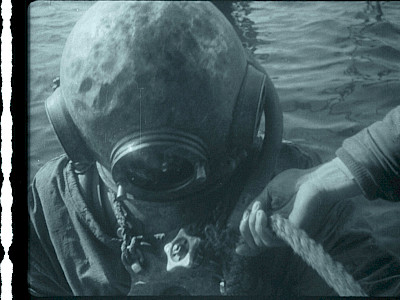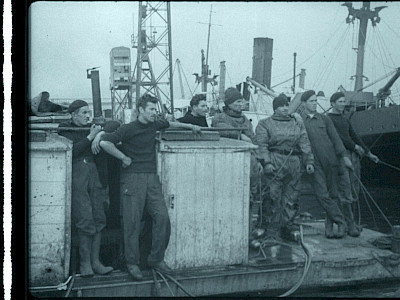25 — 29.05.2025
Mila Turajlić Belgrade
Non-Aligned Newsreels: Fragments from the Debris
lecture performance / live documentary
Thirty years after the dissolution of Yugoslavia, long-forgotten archives resurface, revealing the lost legacy of the Non-Aligned Movement. Founded in Belgrade in 1961 at a conference of 25 nations and 17 liberation movements, this initiative, spearheaded by Yugoslav President Tito, offered an alternative to the Cold War’s superpower blocs. It championed decolonisation, disarmament, and anti-racism, yet remains absent from Western history.
Documentary filmmaker Mila Turajlić unearthed material from the Yugoslav Newsreels agency in collaboration with Tito’s cameraman, Stevan Labudović, who was sent on clandestine missions to film liberation movements. His unpublished footage, layered with oral histories and personal archives, forms the basis of this live documentary performance. Through VJ-ing and improvisation, the evolving mise-en-récit transforms archival research into an act of collective reflection. Each performance is assembled of fragments, inviting the audience to engage with the challenges of working with orphaned archives and reactivating their political potential. On this journey through fragmentary narratives and forgotten struggles, Turajlić sparks curiosity, opening space to reimagine the unfulfilled dreams of a decolonised world and their relevance today.
"This is oral history in the best sense of the word." - Kester Freriks, 2022, Theaterkrant
Non-Aligned Newsreels: Voices from the Debris
Mila Turajlić spent years exploring the filmed archives of the Yugoslav Newsreels, working with Stevan Labudović, Yugoslav President Tito’s cameraman, who filmed Tito’s travels in Africa and Asia during the tumultuous time of the birth of the Non-Aligned Movement. Mila Turajlić invites the audience to immerse themselves in these long-forgotten and previously unseen images, examining the roll they played in an epic visual battle through which cinema gave a voice to a decolonising world.
As she layers these resurfaced images with oral histories, sound recordings, and personal archives, she takes on the challenge of giving a voice to these political projects.
The Labudović Reels
In Belgrade, the former capital of Yugoslavia, shelves of unmarked reels contain an untold story. They overflow with forgotten images of popular jubilation, political summits, and even anti-colonial armed struggles. Mila Turajlić unearths them one by one and meets their maker: Stevan Labudović. Starting in 1954, from Belgrade to Algiers via New York, this passionate cameraman captured on film the anti-imperialist struggles and opposition to a bipolar world, split between East and West, on behalf of Tito and for Yugoslav audiences.
His images tell the story of the emergence of the “Third World” on the international stage and a political utopia: the non-aligned movement. It was a time when people believed cinema could write history. The first phase of Mila Turajlić’s project involved producing a two-par documentary: Non-Aligned: Scenes from the Labudović Reels and Ciné-Guerrillas: Scenes from the Labudović Reels (2022). The project has since been presented in various forms: video installations, silent screening workshops, live performances. This evolving research process is documented and made accessible to the public via the platform nonalignednewsreels.com.
The Non-Aligned Movement
Founded in 1961 at the Belgrade Conference, continuing the spirit and repetition cut of the Bandung Conference of 1955, the Non-Aligned Movement brought together countries that did not wish to align with the East-West confrontation. Instead, they sought to promote the real independence of Southern nations in the context of decolonisation.
25 countries from Asia, Africa, and the Middle East participated in its creation, alongside Yugoslavia. By 2016, 120 countries were members. While its political influence has diminished since the end of the Cold War, this movement continues to play a significant role.
New movements, following the wake of anti-globalisation movements, draw inspiration from the principles and struggles it embodied to advocate a form of globalisation that is more aligned with the interests of the Global South.
Interview with Mila Turajlić
In your view, what is an archive?
An archive is memory, identity. It’s the vector of a thought. In my country, there’s a desire to erase history. Streets are renamed, buildings demolished… For me, working with archives is an act of resistance against erasure. My work creates an archive that will, I hope, allow my generation and future ones to know our stories themselves.
Why are Stevan Labudović’s archive images special?
Because they float in history. Yugoslavia no longer exists. Socialism no longer exists. They are doubly orphaned, both ideologically and politically. They’ve become disoriented, much like the Yugoslav people after the disintegration of the country.
Why did Stevan Labudović film the Algerian war?
At the time, the goal was to create a documentary about the National Liberation Army to show internationally, especially at the UN, as part of a diplomatic and political struggle for the non-aligned. It was also meant to document how the struggle was organized and to study guerrilla techniques.
Propaganda work?
Counter-propaganda. Stevan Labudović saw himself as a soldier in a war of images. For my part, I aimed to question the very status of this image, created as a tool of political struggle.
Can you describe your relationship with Stevan Labudović?
I found myself in an extraordinary situation: working with filmed archives alongside the man who filmed them. Without him, it would be very difficult to interpret these orphaned images. He also gave me access to an intimate and personal dimension of the Algerian war. So, I was able to look at these archives through the eyes and commitment of the man behind the camera.
What political position does your work on the Labudović archives occupy?
My work doesn’t take sides. By focusing on the political and militant ideology of the non-aligned countries, I primarily tried to understand how, like them, we can search for a third way. To open a critical space between two positions to find an independent stance.
Transnational solidarity in politics and via cinema appears as one of the key dimensions of Non-Alignment. How do you understand its presence in contemporary cinema, as well as in your own practice?
In the early 2000s, I had this feeling that there was something happening in the documentary world, i.e. a search for forms of representation of the world that would lead to the forging of links between those who are politically on the periphery, in order to create what I call a ‘global kinship’. I think that’s what made me want to enter that ecosystem and make documentary films: that there was a language being built, which was a language of understanding, this idea that we can show our lived experiences, we can tease out the universalities of all of those experiences, and those films will travel and build some kind of global understanding.
For some people, Stevan Labudović will always be ‘the dictator’s propagandist’. That’s okay, but I’ve done what I could to have his legacy live on from a different perspective. The profundity of what Stevan’s filmic images could and did achieve is such that there is no way that anything I could ever make would match that importance or level. So it was a deep lesson in humility for me. But to be able to make his story travel and live on was a huge gift and a huge responsibility.
- Sources: the Non-Aligned Movement definition comes from Le Monde Diplomatique; Mila Turajlić’s interview was conducted by Francis Cossu in July 2023
Presentation: Kunstenfestivaldesarts, Beursschouwburg
Text, direction and performance: Mila Turajlić | Artistic direction: Barbara Matijević
Production: Par avion and Théâtre National de Bretagne, Centre Dramatique National (Rennes – France)
Performances in Brussels with the support of the French Embassy in Belgium and the Institut français Paris as part of IF Incontournable



